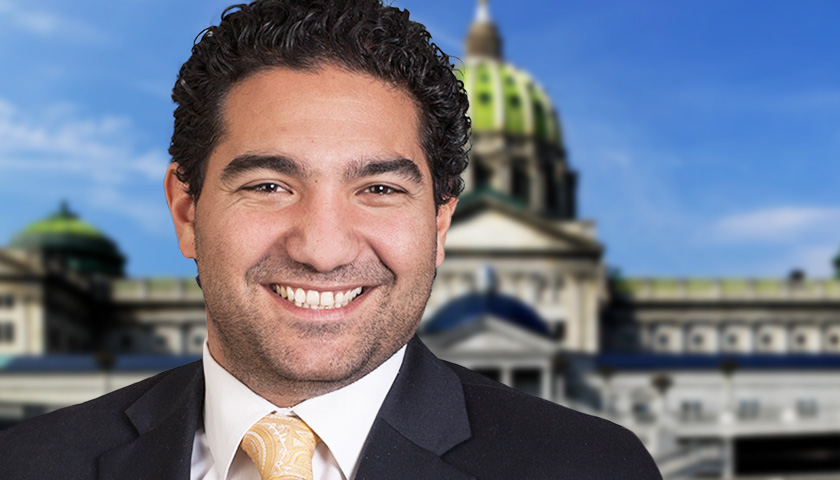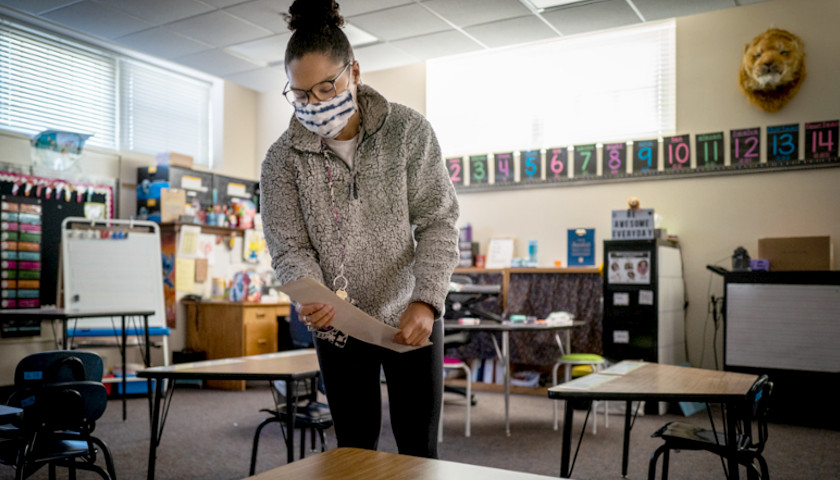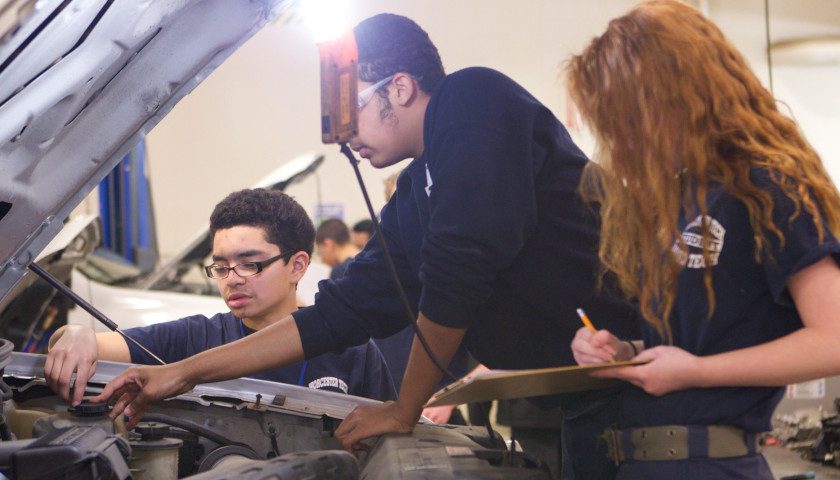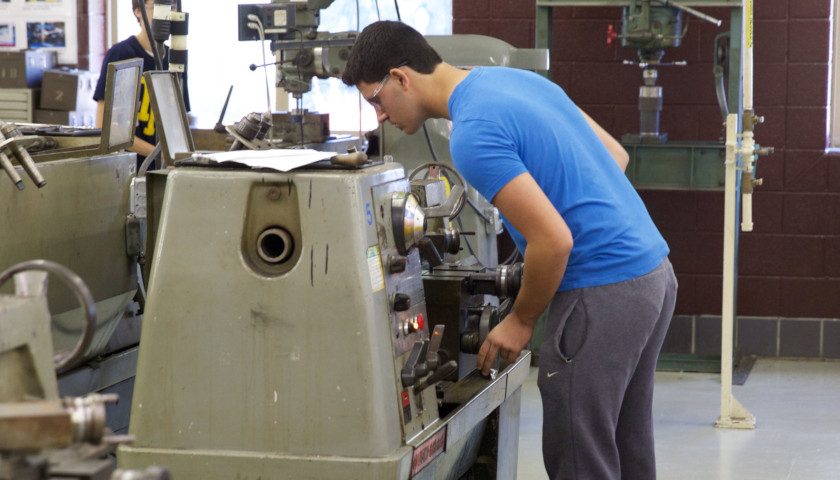by Anthony Hennen
Career and technical education attracts bipartisan support in Pennsylvania, but that doesn’t mean funding flows freely and problems are quickly resolved.
While student interest is high, at least in some parts of the state, finding qualified teachers and offering enough classrooms can hold back expansion.
The House Republican Majority Policy Committee met Wednesday in Bucks County to tour the Upper Bucks County Technical School and hear more about the issues facing CTE in the commonwealth.
“There’s usually not consensus on much in Harrisburg, but one thing that there is consensus on is this type of education,” said Rep. Josh Kail, R-Beaver, and Republican policy chair. “Unfortunately, I don’t believe that the rhetoric matches with what we’re willing to do as far as investments go.”
Kail (pictured above) argued for making CTE a more-important part of the budget.
“If we want to get serious about career and technology education, if we want to get serious about employers and meeting the needs of employers in this commonwealth — and keeping our kids in this commonwealth — we need to get serious with funding. That’s the bottom line,” Kail said. Budgeting is nothing more than priorities, and we need to set our priorities straight.”
Testifiers pointed toward areas that could use a funding boost, such as classroom space and hiring more teachers.
Expanding CTE enrollment isn’t slow due to a lack of student interest. The issues at hand are “logistical problems” that limit how large class sizes can be, said Rich Matthias, an instructor at the Upper Bucks County Technical School.
“It’s much more difficult scaling technical education,” Matthias said. “We can’t put 10 more students in the program — that gets a negative return … scaling it brings in new challenges.”
The “golden number” for the industry, he said, is 6-10 students per instructor, but Upper Bucks County runs at 20.
Getting more teachers is a longstanding problem. One issue is that most teachers who are qualified and leave their industry face a significant pay cut to teach CTE. For those who accept the pay cut, other barriers stand in the way of becoming certified.
“If you’re on track to become a CTE teacher, you have one option for your university,” Matthias said. “If you are south of Route 22, you’re gonna go to Temple University. If you’re above it, you’re gonna go to Penn State — they’re the only two options.”
Transferring to those programs can mean that previous college credits don’t transfer, delaying graduation and making certification more expensive.
“They certainly hold new CTE teachers somewhat – I don’t want to sound — they have all the cards,” Matthias said. “There’s no flexibility on scheduling, there’s no flexibility on anything.”
Matthias isn’t opposed to new teachers getting trained for a new profession, but “it’s a matter of how we do that; is there a better way to do it?” he asked.
Changing the current process, however, might be necessary, Upper Bucks County Technical School Executive Director Michael Herrera argued.
“To recruit and retain qualified CTE teachers, we must remove the many barriers they face while transitioning from industry into the classroom,” Herrera said.
– – –
Anthony Hennen is a reporter for The Center Square. Previously, he worked for Philadelphia Weekly and the James G. Martin Center for Academic Renewal. He is managing editor of Expatalachians, a journalism project focused on the Appalachian region.
Photo “Joshua Kail” by Joshua Kail. Background Photo “Pennsylvania State Capitol” by Kumar Appaiah. CC BY-SA 2.0.






That is so kids will go to college where they can get liberal indoctrination!